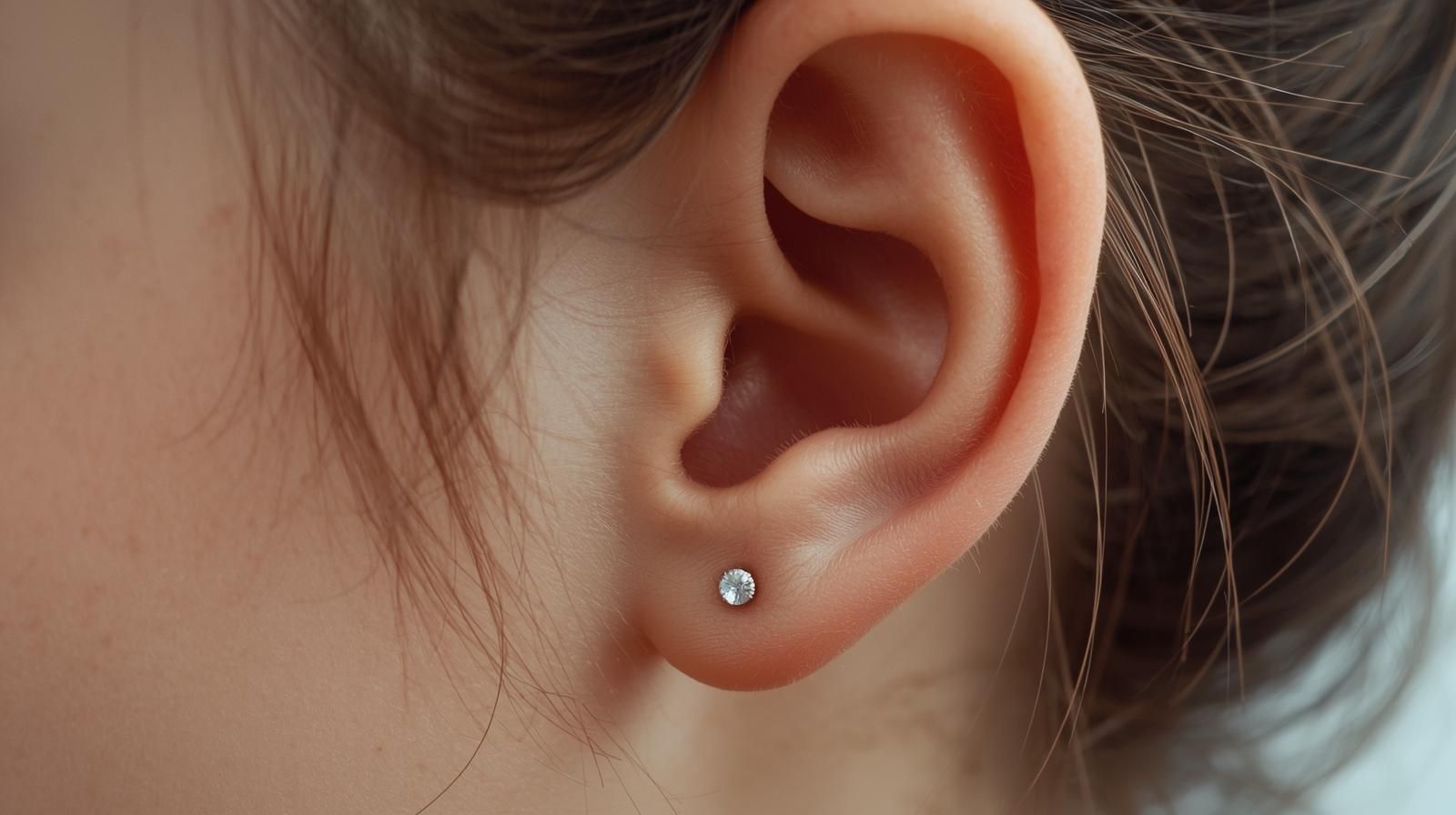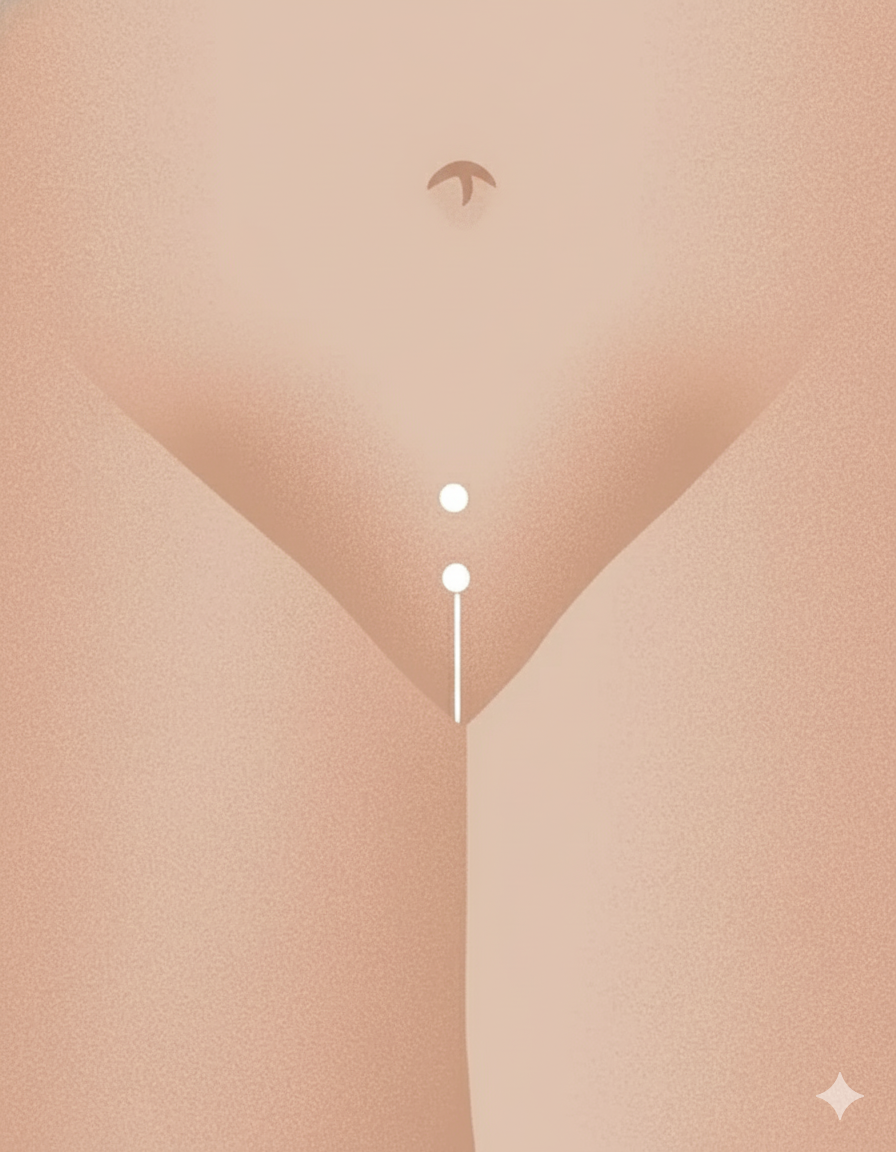Ask your piercer how long they've been piercing. Seriously, ask them!
The Importance of Choosing an Experienced Piercer
Introduction
Piercing is an art form, but there's no legal licence or standard required to call yourself a piercer. In this article we talk about why you should always ask your piercer how long they've been piercing. This art form allows people to embellish their bodies with jewellery that reflects their personal style and identity. However, the process involves more than just selecting a piece of jewellery that appeals to you. Ensuring that you choose a skilled and experienced piercer is crucial for both aesthetic and health reasons. This blog post will delve into why experience matters in piercing, what to look for in a professional piercer, and the potential pitfalls of settling for less experienced practitioners.
Understanding the Role of a Piercer
The primary role of a piercer is to safely and accurately perform body piercings. This requires not only technical skill but also a comprehensive understanding of human anatomy, sterilisation techniques, and aftercare practices. A piercer must ensure that the piercing is placed correctly to avoid complications and enhance the aesthetic appeal. Additionally, they should provide guidance on the best jewellery options and proper aftercare to promote healing.
A well-trained piercer will have an in-depth knowledge of various piercing sites on the body, such as the earlobe, cartilage, nostril, and navel, each of which requires a unique approach. For instance, cartilage piercings need careful handling to prevent long-term issues like keloids or hypertrophic scarring. An experienced piercer will also be up-to-date with the latest trends and techniques, such as the increasingly popular daith or rook piercings, ensuring they provide a wide range of options to their clients.
Moreover, a professional piercer plays an advisory role, helping clients make informed decisions about their piercings. This includes assessing the suitability of a client's anatomy for certain piercings and advising on jewellery materials that minimise allergic reactions. For example, a piercer might recommend titanium or surgical-grade stainless steel for individuals with sensitive skin. These actions demonstrate their commitment to both the art and science of piercing, aiming for optimal aesthetic results while prioritising the client's health and satisfaction.
Why Experience Matters
Experience in piercing is vital for several reasons:
- Skill and Precision: An experienced piercer has honed their skills over time, ensuring that each piercing is performed with precision. This reduces the risk of complications such as infections or misplaced jewellery. For example, a seasoned piercer performing a tragus piercing will know the exact pressure required to pierce the thicker cartilage, minimising trauma to the area.
- Knowledge of Anatomy: Understanding the nuances of human anatomy is critical. An experienced piercer will know how to work with different body types and structures, ensuring that the piercing is both safe and aesthetically pleasing. This is particularly important for complex piercings like the industrial or scaffold piercing, where alignment is key to both appearance and healing.
- Problem-Solving Abilities: In some cases, anatomical barriers may require creative solutions. Experienced piercers have encountered a wide range of scenarios and are better equipped to handle unusual requests or challenges. For instance, if a client has an unusual ear shape or scar tissue from previous piercings, an experienced piercer can adapt their technique to achieve the desired outcome.
- Reputation and Trust: A piercer with a strong track record of satisfied clients is more likely to deliver a positive experience. Trusting your piercer is essential, and experience is a key factor in building that trust. Many clients might feel anxious about the process, especially if it's their first time, but knowing they are in the hands of a professional with years of practice can provide reassurance and confidence.
Experience also means that a piercer has developed a keen eye for detail, essential in ensuring that jewellery is positioned to enhance the natural contours of the body. This artistic aspect of piercing is often underestimated but is crucial in achieving a balanced and aesthetically pleasing result. An experienced piercer understands the subtle differences in anatomy and can adjust their technique to complement the client's individual features.
The Risks of Inexperienced Piercers
Choosing an inexperienced piercer can lead to several issues:
- Improper Placement: A lack of experience might result in poorly placed piercings, which can lead to aesthetic dissatisfaction and potential health risks. For example, a tongue piercing placed too far back can interfere with eating and speech, while a surface piercing may reject if not placed correctly.
- Infection and Complications: Inadequate knowledge of sterilisation and piercing techniques increases the likelihood of infections and complications. An inexperienced piercer may not adequately sterilise equipment or may use poor-quality jewellery, both of which can introduce bacteria into the piercing site.
- Anatomy Misjudgements: Inexperienced piercers may misjudge anatomical suitability, leading to recommendations against certain piercings unnecessarily. For example, they might incorrectly assess a client's ear shape and suggest that it cannot accommodate a helix piercing when a more experienced piercer would know how to adjust the technique for success.
- Inadequate Aftercare Advice: Proper healing requires knowledgeable aftercare. Inexperienced piercers may not provide adequate guidance, prolonging the healing process or causing additional issues. An experienced piercer will outline a clear care regimen, including cleaning instructions and what to avoid during the healing period.
Furthermore, inexperienced piercers may lack the ability to effectively communicate with clients, which is crucial in ensuring that the client's needs and expectations are met. Miscommunication can lead to dissatisfaction and potentially harmful outcomes. An experienced piercer will take the time to explain the process, answer any questions, and set realistic expectations for the healing period and final appearance of the piercing.
Signs of an Experienced Piercer
When selecting a piercer, look for the following signs of experience:
- Portfolio: A comprehensive portfolio of previous work demonstrates the piercer's experience and skill level. Look for variety and precision in their past piercings. This portfolio should include high-quality photos of healed piercings to illustrate the piercer's ability to not only perform the piercing but also ensure successful healing.
- Professional Certifications: While not mandatory, certifications from reputable piercing organisations can indicate a commitment to high standards. Organisations such as the Association of Professional Piercers (APP) offer certifications that ensure a piercer adheres to strict guidelines regarding safety and technique.
- Client Testimonials: Positive reviews and testimonials from previous clients can provide insight into the piercer's reputation and reliability. Look for mentions of professionalism, cleanliness, and satisfaction with both the service and the final result.
- Industry Involvement: Participation in industry events, workshops, or seminars shows a dedication to staying informed about the latest techniques and safety standards. A piercer who regularly attends these events is likely committed to continuous learning and improvement.
- Years of Experience: Enquire about how long the piercer has been practising. More years in the field often correlate with greater expertise. An experienced piercer will have accumulated a wealth of knowledge and skills that can only be gained through years of practice.
Additionally, an experienced piercer should have a thorough understanding of the healing process and be able to provide detailed aftercare instructions tailored to each type of piercing. They should also be transparent about the risks involved and offer realistic timelines for healing, ensuring clients are fully informed and prepared for the aftercare commitment required for a successful outcome.
Questions to Ask Your Piercer
To ensure you are choosing the right piercer, consider asking these questions:
- How long have you been piercing? This question helps gauge their experience level and expertise.
- Can you show me your portfolio? Reviewing their past work can give you a sense of their style and proficiency.
- What sterilisation techniques do you use? Ensuring they follow stringent sterilisation protocols is crucial for your safety.
- How do you handle complications if they arise? Their response will indicate their problem-solving skills and readiness to address potential issues.
- Can you provide aftercare instructions? Comprehensive aftercare guidance is essential for proper healing and avoiding complications.
These questions not only help ascertain the piercer's qualifications but also provide insight into their professionalism and approach to client care. A confident and experienced piercer will welcome these questions and provide clear, informative answers, further reinforcing their credibility and your trust in their abilities.
Common Misconceptions About Piercing
There are several misconceptions about piercing that need addressing:
- All Piercers Are the Same: This is not true. Skills and experience can vary significantly between practitioners. An experienced piercer will have a deeper understanding of the art and science of piercing, which directly impacts the outcome.
- Piercing Is Painful: Pain levels vary, but an experienced piercer can minimise discomfort through technique and precision. For example, using a quick and steady hand can reduce the time the needle is in contact with the skin, decreasing the sensation of pain.
- Healing Is Fast and Easy: Healing times vary depending on the piercing location and aftercare. Experienced piercers will provide realistic timelines and care instructions. They understand that factors such as the client's health, lifestyle, and adherence to aftercare can all influence healing.
Another common misconception is that piercing is a one-size-fits-all process. In reality, each piercing is unique and should be tailored to the individual's anatomy and preferences. An experienced piercer will take the time to customise the piercing process, considering factors such as the client's skin type, lifestyle, and desired aesthetic outcomes.
The Importance of Professional Piercing Studios
Choosing a professional piercing studio is as crucial as selecting an experienced piercer. Here are some reasons why:
- Hygiene Standards: Professional studios adhere to strict hygiene and sterilisation standards to ensure client safety. They are equipped with autoclaves for sterilising tools and use single-use needles to prevent cross-contamination.
- Experienced Staff: These studios typically employ experienced piercers who have undergone extensive training. This ensures that each client receives the highest level of care and expertise.
- Quality Equipment and Jewellery: Reputable studios use high-quality equipment and jewellery to minimise the risk of allergic reactions or infections. They often offer a range of titanium or surgical-grade stainless steel jewellery, known for their hypoallergenic properties.
- Regulated Environment: A professional setting ensures a controlled environment, reducing the likelihood of complications. Studios are regularly inspected to comply with health regulations, providing an added layer of safety for clients.
In addition to these factors, a professional studio often provides a supportive community for both piercers and clients. This environment fosters learning and sharing of best practices, ensuring that piercers are continually enhancing their skills and staying informed about industry trends and innovations. Moreover, a professional studio often has a comprehensive client service protocol, ensuring that every client feels valued and receives personalised attention throughout their piercing journey.
FAQs
1. How do I know if a piercing studio is reputable?
Look for positive client reviews, clean facilities, and professional staff. Verify their adherence to hygiene standards and check for industry certifications. Reputable studios will often display their health and safety certifications prominently.
2. What should I do if I suspect my piercing is infected?
Contact your piercer immediately for advice. They can provide guidance on care and recommend seeing a healthcare professional if necessary. It's important to act quickly to prevent any potential complications.
3. Can I change my jewellery soon after getting a piercing?
It is advisable to wait until the piercing is fully healed before changing jewellery. Your piercer can provide a timeline and assist with the first change. Prematurely changing jewellery can irritate the piercing and hinder healing.
4. Is it normal to experience swelling after a piercing?
Some swelling is normal in the initial days following a piercing. However, if it persists or is accompanied by severe pain or discharge, consult your piercer. They can assess whether the reaction is within normal limits or if further action is needed.
Conclusion
Selecting an experienced piercer is crucial for ensuring a safe and satisfying piercing experience. By understanding the importance of experience, recognising the signs of a skilled practitioner, and knowing the right questions to ask, you can make an informed decision. Prioritising your safety and satisfaction is key, and a qualified piercer will provide the expertise necessary for a successful outcome. For those in Dublin, Impulse Piercing and Bioworks offers a welcoming environment with skilled professionals ready to assist you on your piercing journey. Their commitment to excellence ensures that every client receives the highest standard of care and artistry.









